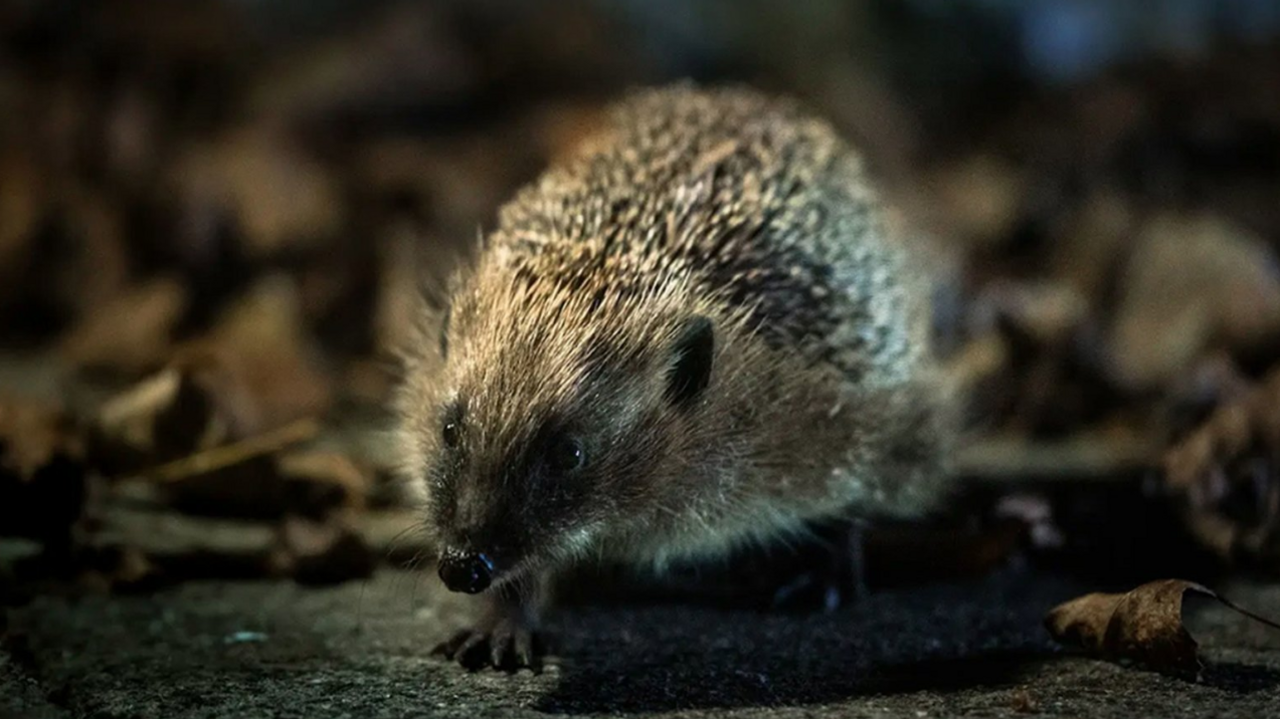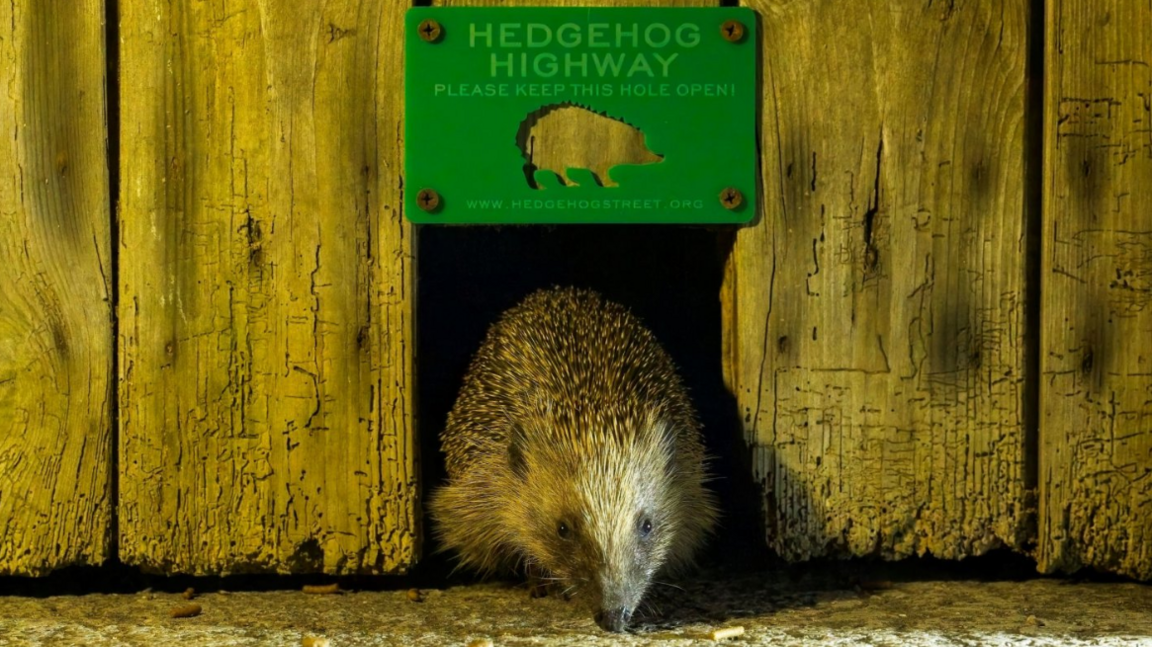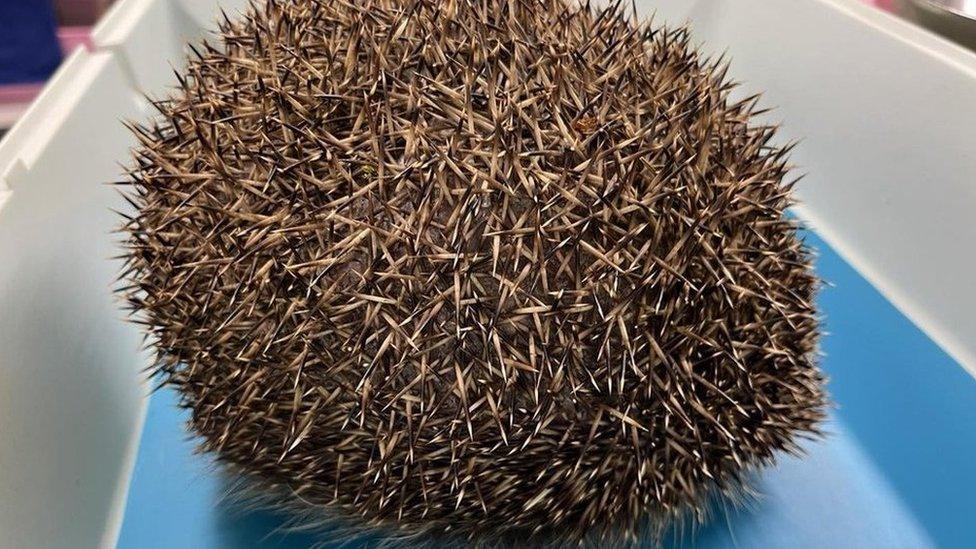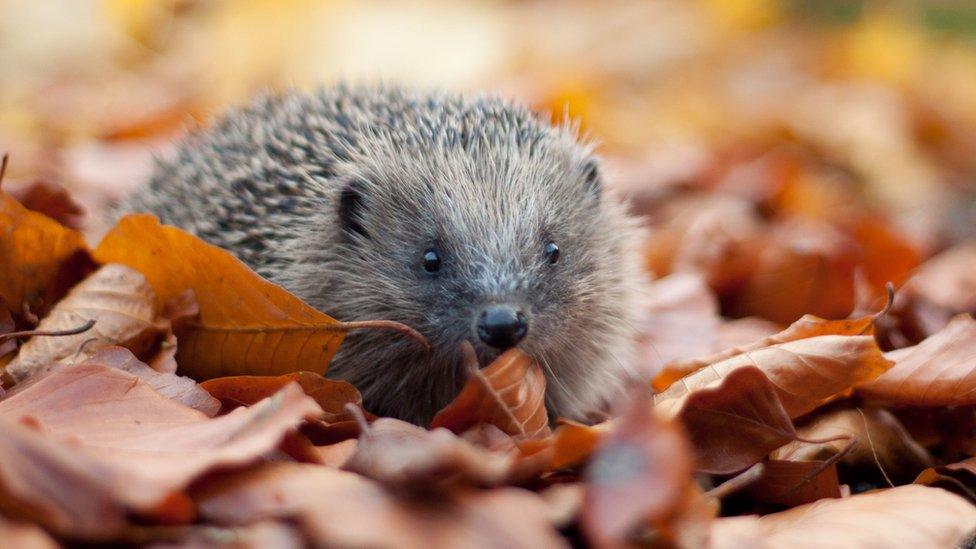Calls to help hedgehogs as numbers half in a decade

The hedgehog has seen its numbers drop by a concerning 50% across a decade
- Published
Experts have urged residents to help hedgehogs thrive after the species' population has halved in a decade.
Building "wild areas" and leaving gaps under garden fences will support hedgehogs, experts have said.
According to Gloucestershire's Hartpury University, which has contributed to the first National Hedgehog Conservation Strategy, "habitat fragmentation" is one of the biggest challenges.
Senior lecturer Dr Lucy Bearman-Brown said as landscapes are "broken into small chunks", it has made it "harder for hedgehogs to find each other for mating".
The new strategy, published by The British Hedgehog Preservation Society (BHPS) and the People’s Trust for Endangered Species (PTES), highlights ways local councils, the government and residents can support hedgehogs.
Speaking to BBC Radio Gloucestershire, BHPS' CEO Fay Vas said the number of hedgehogs in the UK is "not good".

CEO of BHPS Fay Vas recommends making 13 cm² gaps in the bottom of fences and walls to help join up hedgehog habitats
She said: "In rural areas it's thought they've declined between 30 and 75% since the turn of the century.
"The picture is slightly better in urban areas and suburbia where the decline is thought to have levelled off a bit, and even increasing slightly, but still from a very low base-line."
Bug buffet
Ms Vas said there are some key steps member of the public can take to protect the hedgehog population.
She said: "Making sure they [hedgehogs] can get in and out of the garden is number one, so making 13cm gaps in the bottom of fences and walls will really help join up habitats."
The CEO also suggested providing natural food and a "wild corner" in gardens.
"Providing this wild corner or a edge of the garden - log piles that kind of thing - and providing a natural shelter and a bug buffet for them," she said. "That's the very best thing.
"We can also supplement their diet by offering meaty cat or dog food or fresh water to drink."
Get in touch
Tell us which stories we should cover in Gloucestershire
Follow BBC Gloucestershire on Facebook, external, X, external and Instagram, external. Send your story ideas to us on email or via WhatsApp on 0800 313 4630.
Related topics
- Published18 April 2024

- Published13 January 2024
